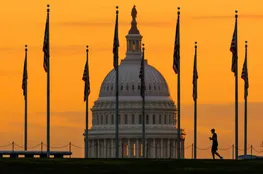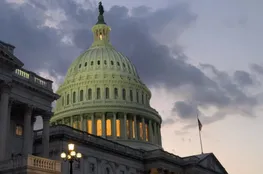Global oil prices saw a noteworthy decline, registering approximately a two percent drop on Monday following a similar dip on Friday. This downturn was largely fueled by investor dissatisfaction with China's lukewarm economic stimulus plan. Adding to concerns over China's economic health was the tepid performance of the Singles' Day online shopping festival, which reported some of its lowest sales figures since its inception in 2009.
Phil Flynn, a senior analyst at Price Futures Group, mentioned to Reuters that the Veterans Day holiday in the United States, coupled with Donald Trump's recent election, might have influenced the decline in oil prices. While Veterans Day slowed trading, Trump's pledge to boost American oil production may have decreased the incentive to maintain long positions. There's also heightened awareness among traders that the Organization of the Petroleum Exporting Countries (OPEC) is planning to increase production soon, weighing down long-term oil price forecasts.
OPEC+, which includes Russia, hinted in late October at possible delays in their production increase until there's a more robust global demand. However, Flynn and others point to China’s weakening economy as the primary catalyst for the slump in oil prices. While Chinese demand is softening, the effects of Trump's policies on global oil markets won't manifest until late next year at the earliest.
Last week, China's economy showed further signs of stagnation when Beijing unveiled its long-awaited stimulus plan. Primarily focusing on alleviating municipal debt rather than fostering growth, the plan disappointed investors who were hoping for robust spending on expansion initiatives. This sentiment quickly resonated during Singles' Day, initially a youth-centric holiday promoting courtship, marked on November 11th due to the numeric symbolism of 'singles' in 11/11.
In 2008, Alibaba transformed Singles' Day into a major e-commerce shopping event, encouraging consumers to indulge in purchases for their loved ones or themselves. Its popularity surged, becoming China's equivalent of Black Friday. As years passed, Singles' Day evolved into an extended shopping period, commencing earlier each year. This year, deals began as early as October 14th, complicating assessments of its success.
The Associated Press reported a general sense of disillusionment during Singles' Day 2024, as consumers were more inclined to buy necessities, viewing holiday sales as gimmicks. Luxury product sales fell, while basic goods gained traction. In response to diminishing excitement, some major platforms ceased publishing sales figures since 2022. This suggests a lack of noteworthy achievements, with many merchants stepping away from Singles' Day due to disproportionate costs.
Shaun Rein, founder of China Market Research Group, indicated that consumer interest in spending has waned, particularly on big-ticket items. Economic conditions have kept discounts prevalent year-round, diluting the appeal of November 11th discounts. Meanwhile, Alibaba seems to be shifting focus towards providing global free shipping, reallocating resources from holiday promotions.
Agence France-Presse noted that market analysts had anticipated strong growth for Singles' Day, interpreting any shortfall as indicative of low consumer confidence. Consulting firm VO2 Asia Pacific projected a fifteen percent increase over Singles' Day 2023 sales, amounting to roughly $167 billion. However, it warned of potential reductions in final sales figures due to consumer habits of bulk purchasing to meet discounts, followed by higher return rates.
























